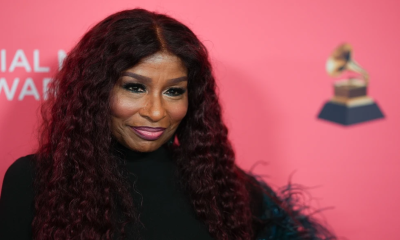Behind the scenes, best supporting actress Oscar winner Youn Yuh-jung is like many other stars: She said she reveres Glenn Close and admires Brad Pitt. But there's a tiny caveat: She’s just not that into Hollywood.
Youn, 73, a veteran actress in her home country of South Korea, told NBC Asian America after her historic Oscar win on Sunday she took on the role as a grandmother in Lee Isaac Chung’s “Minari,” which is about a Korean American family putting down roots in Arkansas, because she understood the day-to-day dilemma of immigrants that her two sons, who are Korean American, had also withstood.
“When some project comes from America, people in Korea think I admire Hollywood,” she said. “No, I don't admire Hollywood. The reason I keep coming is because if I come to the States and work, maybe I'm able to see my son one more time. That’s from the bottom of my heart.”
Youn became the first Korean and second Asian on Sunday to take home an Oscar for best supporting actress. Japanese American singer Miyoshi Umeki earned the trophy for 1957’s “Sayonara” more than six decades ago. Youn, who currently resides in South Korea, had lived in the U.S. for about 13 years when she came to live with her former husband in the 1970s.

During a Korean news conference hosted by the South Korean Consulate General in Los Angeles after her win, she shrugged and rolled her eyes about the spate of questions she received about Pitt.
“I told him to provide more money to the movie,” she said of Pitt, who owns the production company behind “Minari,” Plan B Entertainment.
“I also told him to come to Korea,” she added. “He promised that he will. But I don’t really believe the words of Americans. Their vocabulary is so fancy. He said my performance was very respectable and whatnot, but I’m old. I don’t fall for those words.”
For her role as Soonja, the foul-mouthed but doting grandmother in “Minari” who shows signs of dementia after a stroke, she had practiced with a neurologist the strides, posture and facial expressions of people who have the condition. In one haunting scene after her stroke, Soonja accidentally causes a major fire on her daughter and son-in-law’s property.
To convey the facial expressions correctly, Youn said she had stuffed celery, carrot and beef jerky inside her mouth to keep her face still.
Yet, when asked about the reasoning behind the huge love she’s receiving for her role that has led some Koreans to dub her their “K-grandma,” she said, “There’s nothing I did well. The script was well-written.”
“The absolute love and sacrifice of our grandmother and parents are a universal story,” she said in the Korean news conference. “That probably pulled the heartstrings of many. Chung wrote the script with deep sincerity.”

Youn, who was also caught sharing air kisses with Close during the Oscars, said she had seen the actress play “A Streetcar Named Desire” in London while on fellowship at Churchill College at the University of Cambridge in the early 2000s.
Youn, who is close in age to Close, said she envied her courage for playing Blanche, a character symbolizing purity and innocence in her 20s, despite being in her 50s back then.
“I knew she wasn’t just doing this for the money, but challenging her acting,” Youn said. “I could see that she was trying to work hard.”
Youn, who credited a “little bit of luck” for her groundbreaking award, holds fast to serendipity and a strong work ethic.
When asked what advice she would give her two sons, she echoed her award speech that thanked her two sons, “who make me go out and work. … This is the result, because Mommy works so hard.”
"Me, without work — you get bored. Don’t you think?" she said. "Your career, it's a part of you, representing your name and yourself."
Her 50-year acting career began at the age of 23 in South Korea, spanning from her big screen debut in Kim Ki-young’s “Woman of Fire” in 1971 that raked instant success to her more recent TV cooking reality show “Youn’s Kitchen,” which was rebranded to “Youn’s Stay” this year and showcases her no-nonsense personality.
During her early success, she married one of South Korea’s prominent singers, Jo Young-nam, who sang a mix of trot, pop, folk and Christian music. She moved with him to the U.S. in the 1970s, which sent her peaking career on a detour for almost a decade. Jo had performed at Billy Graham’s church as a gospel singer.
Her marriage ended in divorce in the 1980s, when Youn struggled to resume her acting career to support her two boys, at a time when Korean society carried deep prejudices against divorced Korean women.
“I was really famous when I was young. Then my fame and my name were banished because I was a divorcée,” Youn said, adding that she refrained from appearing on television at the time. “It was like a scarlet letter.”
At 38, she considered working as a cashier at a Publix grocery store in Florida, earning a minimum wage of $2.75, to support her two boys. She thought it was her only option due to language barriers and the weight of the stigma in Korea.
But Youn remains grateful that, along with the other good fortunes in her life, a writer and friend had pointed out she had a “very gifted talent” unbeknownst to her and offered her a role.
“From then on, I realized I would work as an actor forever,” she said. “I don't like that kind of life anymore of becoming just comfortable in your marriage. I'm very glad I became a career woman.”
Youn believes she came this far because of her desire to survive and put food on the table.
“I had an inferiority complex,” she said in the news conference. “I was desperate without a theater degree. The only experience I had were part-time side jobs. I knew my weakness, so I worked hard to memorize my lines. I didn’t want to be a nuisance to others.”
“The script was like the Bible for me,” she added, pointing to the “How do you get to Carnegie Hall?” punchline, which is, “Practice.”
“I really tried hard,” Youn said.
Still, she has captured many hearts around the world.
“It's a very happy moment, when I got the award. But it's not going to change my life,” Youn said, breaking into a smile. “I'll be going back home, and I will start working again.”
Source: Yahoo




-20260228064648.jpg)

-20260216115008.webp)









-20260303080739.webp)

















-20260225072312.webp)



